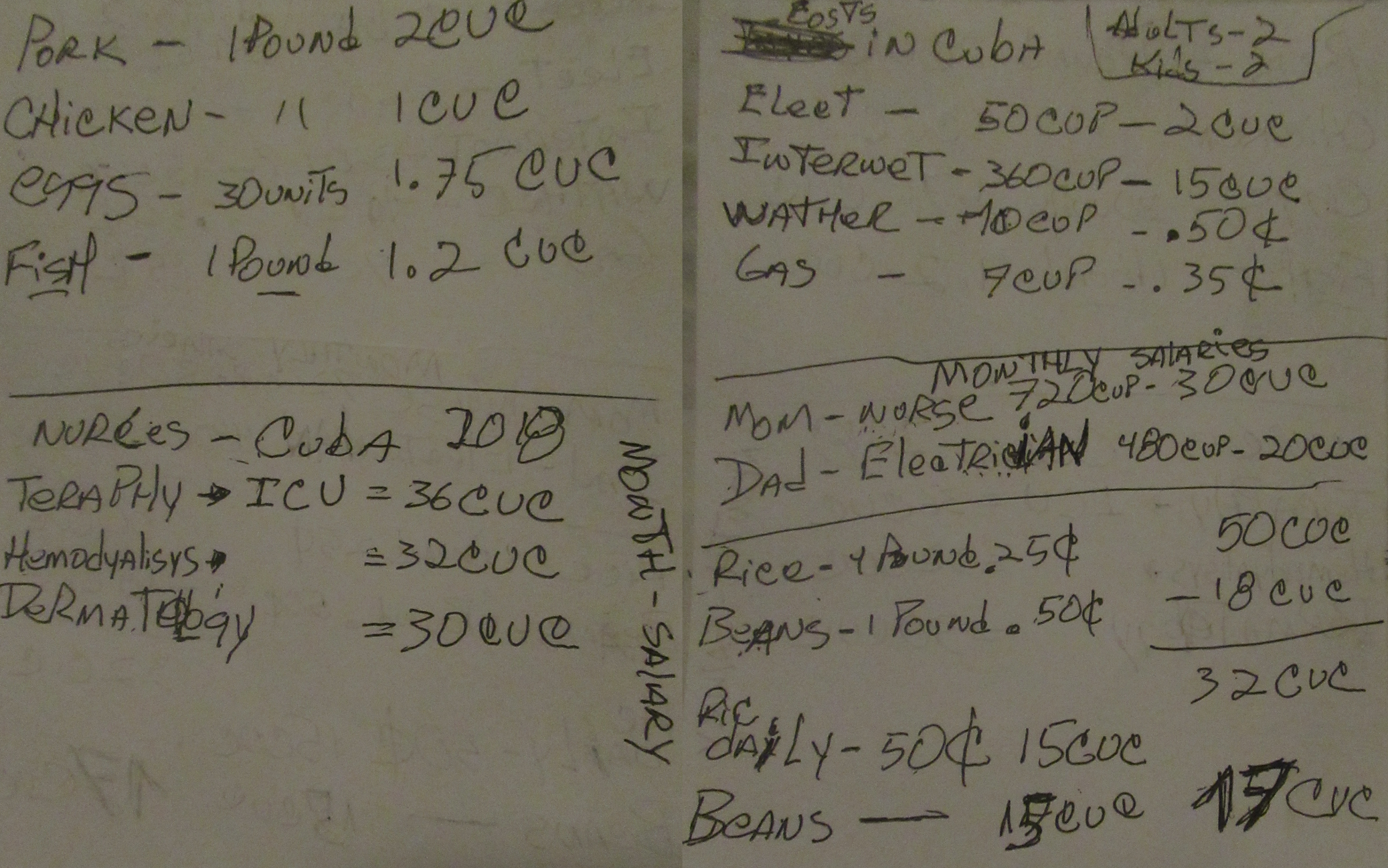In my limited understanding of socialism, everyone is meant to be equal. Everyone pulls their weight and the government ensures that everyone is housed and fed. With that in mind, I couldn’t understand why people mobbed the tourists getting off the bus in Vinales, pushing their casa particular as the best. Or why doctors only get paid 40CUC (US$40) per month but the driver of the vintage car charged 50CUC for an hour drive. Did this money all go to the government?
Through numerous discussions with locals, I pieced together a rough view of how their lives work financially. The government takes most of what each person produces or earns—somewhere in the order of 90%–and lets them do them do what they like with the rest. One person wrote out the microeconomics of an average household for me. A family with two children, where Dad is an electrician and Mum is a nurse, has an income of about 50CUC per month. Utilities come to about 35CUC and a basic diet of beans and rice comes to about 17CUC, which leaves them short by 2CUC. When I suggested that cancelling the internet was the obvious solution, he pointed out that 15CUC was still not going to buy much in the way of vegetables and meat for 4 people for a month.
So both parents end up taking additional jobs, usually in some form of tourism, which takes them up to, say, 110CUC. It’s still a very basic standard of living.
This still doesn’t answer questions of house ownership or how people choose / are assigned careers or whether to live in the city or the country, but my trip to Cuba was cut short as I had my own experience of poverty and I was unable to ask all these questions. I did ask one country person whether Cuba was facing a similar problem to other countries where young people are flocking to the city. The response was a shoulder shrug. ‘Pueblo, campo egual.’ City / country same.
